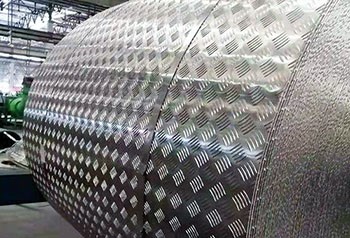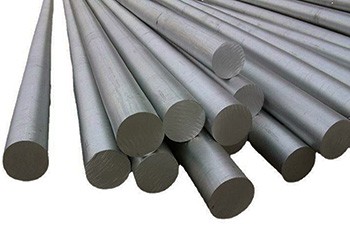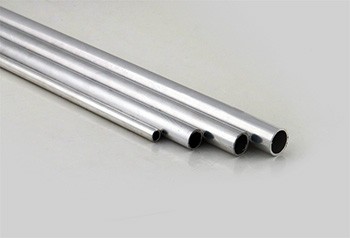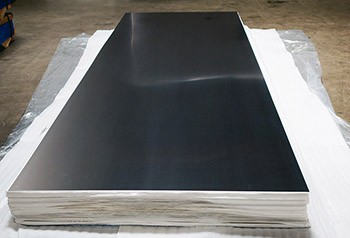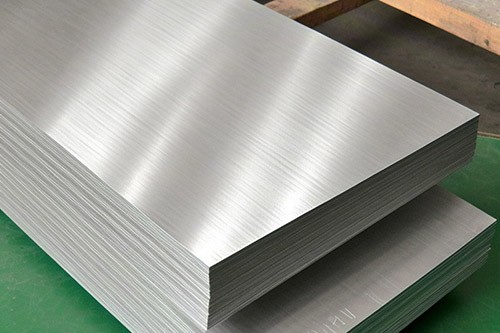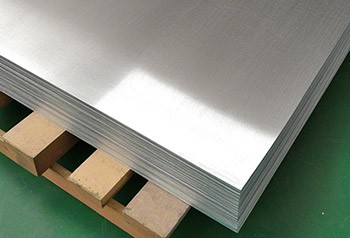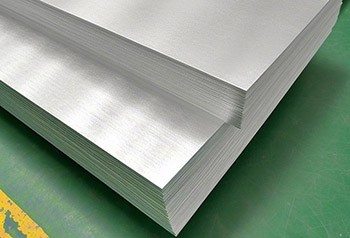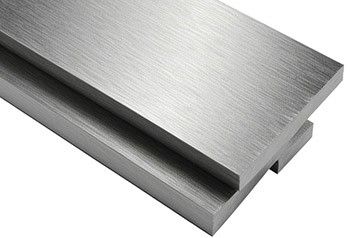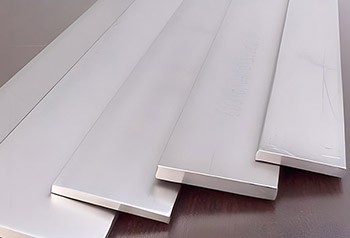Is 5083 aluminium marine-grade?
Last Updated :
Yes, 5083 aluminum is considered a marine-grade alloy. It is well-known for its excellent corrosion resistance, particularly in marine environments, as well as its high strength and good weldability. This alloy is commonly used in the construction of ships, boats, and other marine applications. Its composition typically includes magnesium and manganese, which contribute to its durability and performance in harsh conditions.
5083 aluminum is regarded as a marine-grade alloy. Due to its exceptional corrosion resistance in seawater, it is highly regarded in the maritime industry. 5083 is one of the most commonly used alloys in marine applications, especially in shipbuilding, offshore structures, and vessels.
5083 marine-grade aluminum is highly suitable for applications that require superior corrosion resistance in harsh environments. It is the strongest non-heat-treated aluminum alloy, retaining its strength even after welding.
Marine aluminum products you may be interested in
Key Features of 5083 Marine-Grade Aluminum
1. Excellent Corrosion Resistance
One of the most notable features of 5083 aluminum alloy is its outstanding corrosion resistance, especially in seawater environments. It is resistant to saltwater, marine climates, as well as acidic and alkaline environments, making it an ideal choice for marine engineering and shipbuilding.
- Saltwater Corrosion Resistance: 5083 aluminum alloy maintains its strength and structural integrity even after prolonged exposure to seawater. This makes it particularly effective in marine operations and ship structures, especially in areas below the waterline.
- Pitting Resistance: 5083 alloy is particularly resistant to pitting corrosion in seawater, which is crucial for components exposed to humid or corrosive environments for extended periods.
- Stress Corrosion Cracking Resistance: 5083 has excellent resistance to stress corrosion cracking (SCC), reducing the development of cracks caused by stress, even in high-humidity, high-salinity, and high-temperature environments, ensuring long-term safety and reliability.
2. High Strength
In addition to its excellent corrosion resistance, 5083 aluminum alloy also boasts high strength, which is key to its widespread use. Through precise alloying, 5083 can achieve high strength, making it suitable for structural components.
- Tensile Strength: 5083 provides sufficient strength for marine structural components, such as hull plates, offshore platform support structures, and subsea pipelines.
- Impact Resistance and Toughness: 5083 maintains good impact toughness even in low temperatures and high-stress environments, making it ideal for ship structures and other components subjected to dynamic loads.
3. Excellent Weldability
5083 aluminum alloy has good welding properties, maintaining excellent mechanical properties and corrosion resistance even after welding.
TIG Welding: 5083 is suitable for TIG (Tungsten Inert Gas) welding, allowing it to be effectively welded into structural components with minimal change in performance after welding. The welded joints retain high strength when under load.
Weld Joint Strength: Even during welding, 5083's weld joints maintain good strength and corrosion resistance, reducing the risk of cracking or corrosion issues.
4. Cold Working Characteristics
5083 aluminum alloy is highly cold-workable, and its strength can be further enhanced through cold working. However, its machinability is slightly lower than some more common aluminum alloys, such as 6061.
- Cold Work Hardening: Cold working (such as stretching, forming, extrusion, etc.) can increase the strength of 5083, but it may reduce its ductility, so temperature and deformation rate need to be carefully controlled during processing.
- Machining Difficulty: Compared to 6061, 5083 is somewhat harder to machine and may require more advanced tools and processing techniques, such as high-quality cutting tools and lubricants, to ensure no damage during machining.
5083 aluminum alloy is particularly suited for extreme environments, especially in marine and shipbuilding applications where high corrosion resistance is critical.
High Temperature Resistance: While 5083 aluminum alloy does not perform as well at high temperatures as some high-strength aluminum alloys (such as 2618 or 7075), it still maintains good mechanical properties in moderately high-temperature marine environments.
Long-Term Performance: When exposed to marine environments for extended periods, 5083 shows a low corrosion rate and does not experience a significant loss of strength due to corrosion, ensuring long-term stability.
Applications of 5083 Marine-Grade Aluminum
1. Hulls and Decks
5083 aluminum alloy is a commonly used material in shipbuilding, particularly in the construction of hulls and decks. Due to its excellent corrosion resistance and strength, 5083 can remain stable in marine environments for extended periods.
Hull Structures: Hulls need to have sufficient strength and corrosion resistance to withstand seawater corrosion as well as stresses from waves and impact. Due to its resistance to seawater corrosion, 5083 aluminum alloy is often used for the exterior shells, bulkheads, sterns, and bows of hulls. These areas require materials that can withstand water impacts while maintaining high mechanical strength and toughness.
Decks: Decks are areas where crew members work and operate, and they are exposed to the external environment, making them vulnerable to seawater and atmospheric corrosion. The use of 5083 aluminum alloy for deck components ensures the structural integrity of the vessel, minimizing potential hazards caused by corrosion or loss of strength.
Advantages: 5083's resistance to pitting, stress corrosion cracking, and seawater corrosion makes it indispensable in these marine environments, effectively extending the service life of vessels.
2. Offshore Oil Drilling Platforms
Offshore oil drilling platforms are often exposed to harsh marine environments and are involved in deep-water operations, oil and gas drilling, and other complex tasks that require materials with high corrosion resistance, strength, and long-term stability. 5083 aluminum alloy is widely used in this field.
Structural Components: 5083 aluminum alloy is commonly used for the structural framework, platform supports, equipment brackets, and hull structures of offshore platforms. Since these platforms are frequently exposed to intense seawater corrosion, 5083's corrosion and pitting resistance makes it an ideal choice.
Seawater Immersion: Many parts of offshore platforms are submerged in seawater for long periods. 5083 aluminum alloy retains high strength and corrosion resistance even when exposed to continuous seawater immersion, preventing structural damage from corrosion, reducing maintenance costs, and improving platform operational safety.
Stress Corrosion Resistance: Offshore platforms often operate in environments with strong winds and waves. 5083's stress corrosion cracking resistance ensures that it does not easily crack or fail under prolonged exposure to stress and corrosion, maintaining the integrity of the platform's structure.
3. Marine Vessel Components: Tanks, Containers, and Pressure Vessels
5083 aluminum alloy is also widely used in critical marine vessel components such as tanks, containers, and pressure vessels, which require long-term stability and reliability in marine environments.
Tanks: Tanks used for storing fuel, liquefied gas, chemicals, or other liquids on ships must have good corrosion resistance, structural strength, and chemical stability. 5083 aluminum alloy, with its resistance to seawater corrosion and excellent welding properties, is an ideal choice for tank structures. It not only prevents seawater corrosion but also ensures that the tanks maintain their seal and strength over time.
Containers: During maritime transport, containers are frequently used to store and transport goods. Due to its lightweight and high strength, 5083 aluminum alloy is the preferred material for marine containers. Containers are subjected to frequent handling, stacking, and changing loads during marine operations, and 5083 aluminum alloy maintains excellent performance in these demanding environments.
Pressure Vessels: Pressure vessels used for storing and transporting gases or liquids on ships and offshore platforms must withstand high-pressure environments and resist corrosion. 5083 aluminum alloy, with its high strength and exceptional corrosion resistance, is widely used in the manufacture of such equipment. It can effectively resist high-pressure environments and marine climates, ensuring the safety and reliability of the vessels over extended periods of use.

